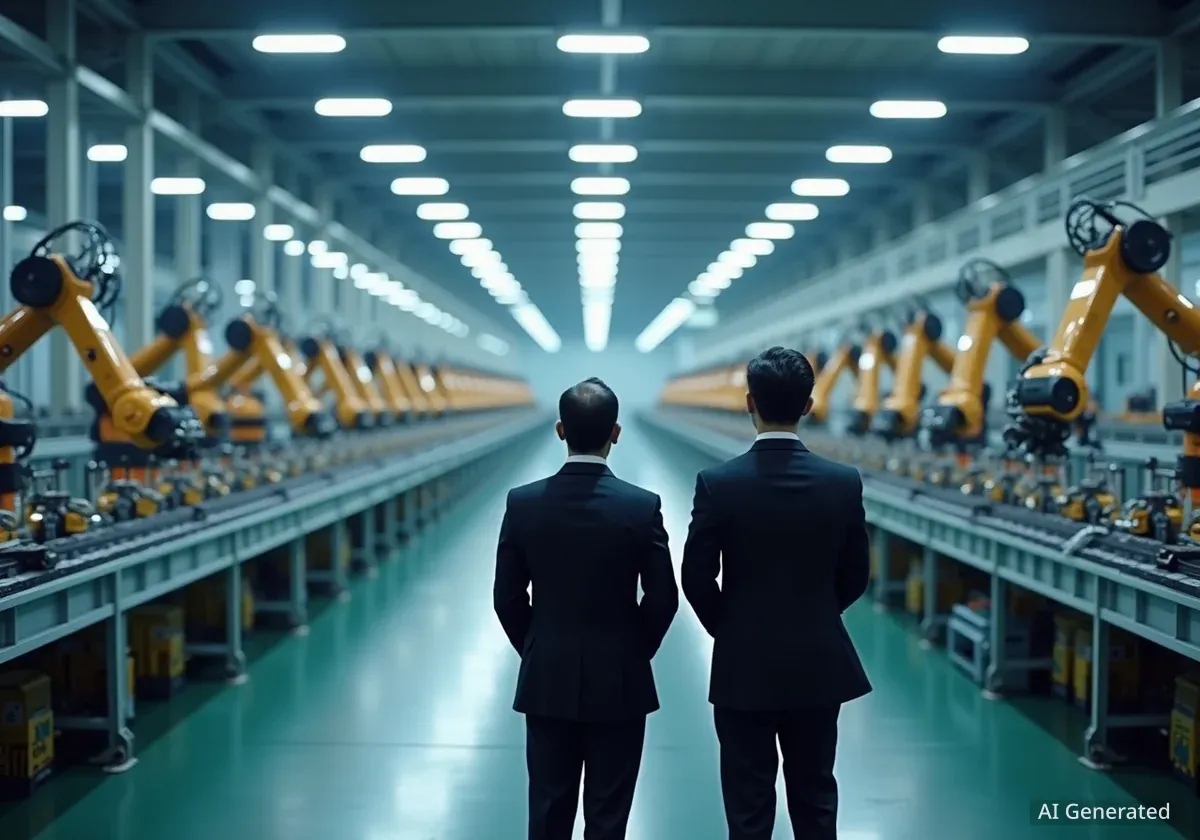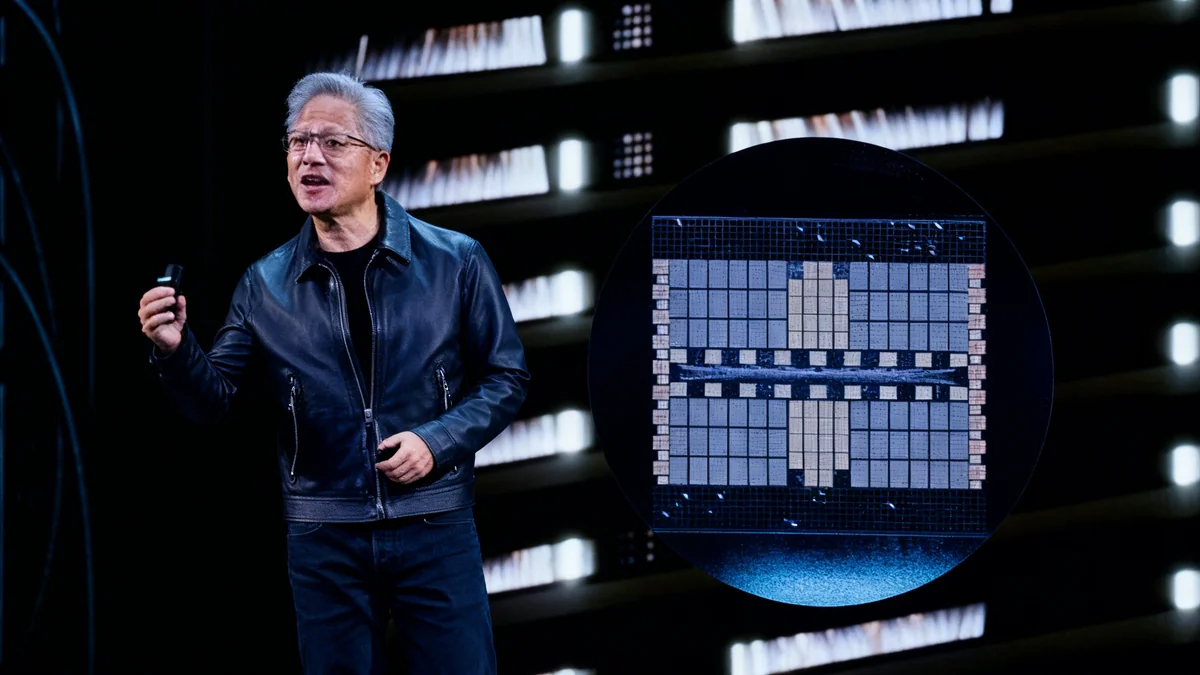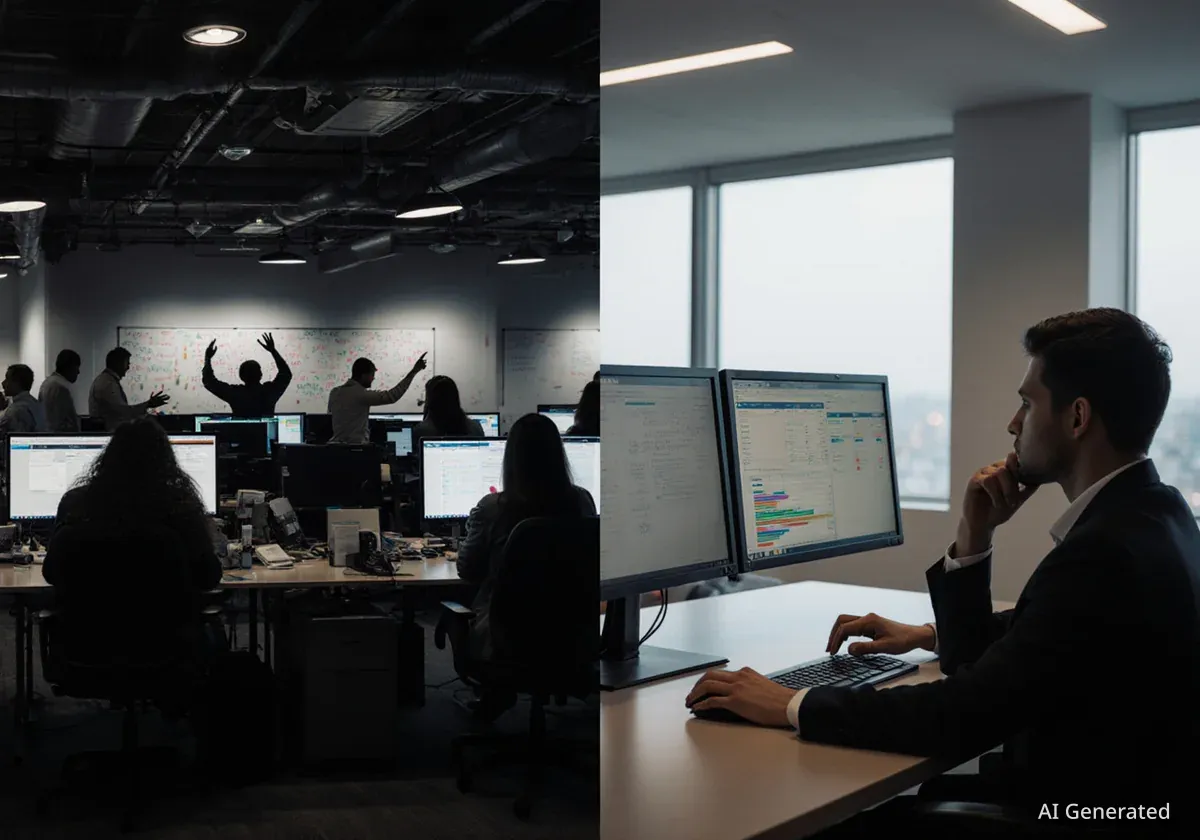Automotive and energy executives from Western nations are returning from visits to China with stark warnings about the country's advanced manufacturing capabilities. They describe highly automated factories, some operating without human workers, that could give Chinese industries, particularly in the electric vehicle (EV) sector, a significant competitive advantage over their Western counterparts.
The observations highlight a strategic shift in China's industrial power, moving from a model based on low-cost labor to one driven by high-tech automation and rapid innovation. This development is prompting urgent calls for Western industries to adapt or risk being left behind in a global technology race.
Key Takeaways
- Western executives report that China's factories are becoming so automated that some operate without human workers, referred to as "dark factories."
- Ford's CEO, Jim Farley, has expressed concerns that failure to compete with China in the EV market could threaten the company's future.
- China's push for automation is partly a strategic response to its declining population, aiming to maintain manufacturing output without relying on a large labor force.
- The International Federation of Robotics reports that China has deployed significantly more industrial robots than the U.S., Germany, and the UK combined.
The Reality of Hyper-Automated Manufacturing
Business leaders visiting China are describing a manufacturing environment that is years ahead of what is common in the West. They have toured facilities where production lines are run almost entirely by robots, operating continuously in what some have called "dark factories" because they don't even require lighting for human workers.
The experience has been so impactful that it has led some companies to change their business strategies. Andrew Forrest, founder of the mining company Fortescue, told The Telegraph he abandoned plans to produce EV powertrains in-house after a recent trip to China. "There are no people — everything is robotic," he stated, summarizing his observations of the country's manufacturing efficiency.
A New Industrial Revolution
The term "dark factory" refers to a fully automated production facility that can operate without human presence on-site. These factories leverage industrial robots, artificial intelligence, and the Internet of Things (IoT) to manage production, logistics, and quality control around the clock, significantly increasing efficiency and reducing operational costs.
This level of automation is creating a sense of urgency among Western competitors. The efficiency and scale of these operations are seen as a direct challenge to established industrial powers that have traditionally relied on a mix of human labor and less integrated automation.
A Shift from Low Wages to High-Skill Innovation
For decades, China's competitive edge was attributed to low labor costs and government subsidies. However, executives now report a fundamental change in the country's industrial strategy. The new driver of its competitiveness is a large and growing pool of highly skilled engineers who are focused on constant innovation.
"You get this sense of a change, where China’s competitiveness has gone from being about government subsidies and low wages to a tremendous number of highly skilled, educated engineers who are innovating like mad," Greg Jackson, CEO of British energy supplier Octopus, explained to The Telegraph.
This innovation is not limited to manufacturing processes. China has also initiated a comprehensive ten-year plan to establish artificial intelligence as a primary engine for its economic growth. This national strategy extends beyond factories, with significant advancements in other high-tech sectors, including a rapidly developing space program that has sparked concerns of a new race to the Moon.
Dominance in Industrial Robotics
According to recent data from the International Federation of Robotics, China's deployment of industrial robots far outpaces that of other major economies. The country has installed orders of magnitude more robots than industrial powerhouses like Germany, the United States, and the United Kingdom, underscoring its commitment to automation.
Automation as a Demographic Strategy
While Western companies often adopt automation to increase profit margins, analysts suggest China's motives are also driven by long-term demographic challenges. The country is facing a significant population decline, which could threaten its labor-intensive manufacturing sector.
Rian Whitton, an analyst at Bismarck Analysis, noted that China's automation push is a preemptive measure. "China has quite a notable demographic problem but its manufacturing is, generally, quite labor-intensive," Whitton told The Telegraph. "So in a pre-emptive fashion, they want to automate it as much as possible... to compensate for this population decline and to get a competitive advantage."
This strategy could allow China to maintain its status as a global manufacturing hub even as its workforce shrinks. European economies, which also face aging populations, may need to adopt similar strategies to remain competitive.
Sander Tordoir, chief economist at the Center for European Reform, highlighted this point. "Robotics, if deployed well, can lift the productivity of your economy greatly," he said. "And if China is extremely good at it, then we should try to catch up because, like China, a lot of Europe is aging."
The Electric Vehicle Market is the Front Line
The most immediate and visible impact of China's industrial strategy is in the electric vehicle market. Chinese EV manufacturers are rapidly gaining ground, producing technologically advanced vehicles at competitive prices. This has created significant pressure on legacy automakers in the West.
Ford CEO Jim Farley has been particularly vocal about the threat. He told The Verge last month that the competition extends beyond just cars. "We are in a global competition with China, and it’s not just EVs," Farley warned. "And if we lose this, we do not have a future at Ford."
In the United States, protectionist measures have so far shielded domestic automakers from direct competition with Chinese EV brands. However, these vehicles are already making a significant impact in the European market, where they are often praised for their quality and value.
A Firsthand Look at the Competition
The capabilities of Chinese EVs are not just a distant threat for executives like Farley; they are a tangible reality. He admitted to personally testing a vehicle from a Chinese competitor and being impressed by its quality.
"I don’t like talking about the competition so much, but I drive the Xiaomi," Farley revealed. "We flew one from Shanghai to Chicago, and I’ve been driving it for six months now, and I don’t want to give it up."
This firsthand experience underscores the seriousness of the challenge facing Western automakers. Farley described the Chinese EV industry as the "700-pound gorilla," acknowledging the formidable combination of scale, technology, and innovation that Western companies must now confront to secure their position in the future of transportation.





